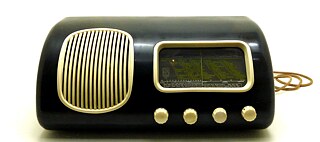Growing up with the radio “You do right”

What influenced you? The radio! Hamburg music journalist Jürgen Ziemer talks about growing up with the radio in the 1970s and 1980s: with the Beatles, Karlheinz Stockhausen, krautrock and “Anti-hits”.
As a kid, I used to spend hours sitting in front of an old tube radio, turning the dial. I liked the way the pointer glided effortlessly over the emerald-green illuminated frequency display with all the foreign city names: Paris I, Berlin-East, Milan, Monte Carlo. Each turn of the dial brought new sounds. Mournful strings, booming brass bands; sometimes the Beatles yelled at me from the speaker: ”I wanna hold your hand!” Often there was only talking. There were foreign-language programmes for migrant workers, other shows addressed rural populations in Hessian dialect. And in between, the old wooden wireless hissed, crackled and whistled like a stubborn pet refusing to be pushed around.The tube radio had already passed its prime and was a fixture in my grandparents’ house, where I often spent the afternoons. I felt like I ruled over this box, which looked at me patiently through its magic eye. Magic eye − isn’t that a wonderful name for an electron-ray tube that visualises the strength of the transmitter signal with a green pulsating light? By the 70s, family evenings spent gathered around the radio for news and entertainment was a thing of the past. Television had long since taken over.
For me, the radio was more like a magical rabbit hole, which I crawled into again and again, delving deeper each time. I wasn’t searching for anything in particular, I just wanted to be surprised. Once I ended up listening to a programme for contemporary classical music. The very earnest-sounding presenter announced a piece with a rather gruesome-sounding title: Song of the Youths in a Fiery Furnace by Karlheinz Stockhausen. Flitting voices, electronic sounds and lots of spooky silence – I understood nothing but was profoundly impressed.
When I liked a song, I immediately pressed the Rec button.
One of the most important institutions was SWF 3’s Pop Shop, a bold pioneer of German youth radio. On Hessischer Rundfunk, Werner Reincke served up the Hit Parade International – I’d learn the chart-toppers by heart and show off my knowledge in the school playground. But as puberty progressed, this wasn’t enough for me anymore. I wanted to delve more deeply into the subject, and discover what the krautrock phenomenon was really all about. Even the names of bands like Amon Düül, NEU! or Kraftwerk sounded strange and appealing to me. Once on Pop Shop I heard a piece by Can. A voodoo-like rhythm emanated from the radio, driven by hypnotic drums and a bass line on a continuous loop. Accompanied by a buzzing electronic sound and a hoarse voice that kept repeating “You do right” over and over again, it was almost as though the singer wanted to encourage me: You’re doing okay, boy, keep going, you’re on the right track
I’m not singing for you, you over-fed omnivores.
Some days though, I’d end up with the American forces and their Wiesbaden-based station AFN, which broadcast music and news to GIs who were stationed in Hesse. My English was still rudimentary back then, but I liked the legendary radio DJ Wolfman Jack with his rusty voice and trademark wolf-howl. From today’s perspective, I’d much rather have grown up with John Peel, but he could only be listened to in northern Germany, courtesy of the British forces station BFBS.
From the late 80s, my relationship with radio changed. Of course, there were still great shows, like Klaus Walter’s Der Ball ist rund or the Bavarian Zündfunk. But the public broadcasters had started to backpedal more and more, fearing the mainstream music played on the new private stations would lure away their listeners. But in doing so, they became broadcasters of mainstream music themselves, closing down precisely the kind of shows and programmes that had previously guaranteed uniqueness and quality. The rabbit hole I loved to disappear into as a child and teenager was filled with excited DJ chitchat and the “mega hits of the 80s, 90s and the best of today”. One small consolation today are internet stations like ByteFM, that are reinventing or at least reactivating radio again. It’s interesting that many of the DJs and presenters are slightly older, like me. As if we are harping back to the ghosts of bygone times, when radio experimented with new sounds and tried out new things, allowing us to learn a lot about life in the process.


